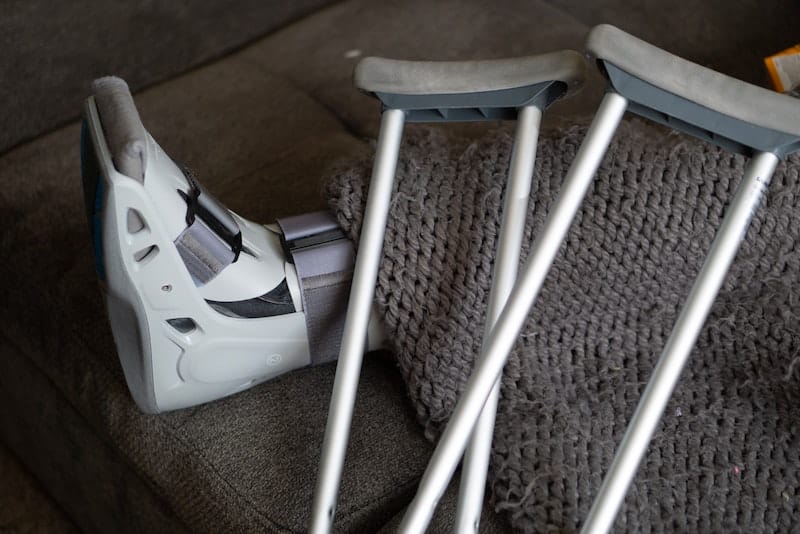Have you or one of your family members received medical care from a healthcare professional that you believe led to a personal injury or failed to meet the standard of practice you believe medical professionals are held to? Experienced Houston medical malpractice attorney, Lanease Fuller can help you file a medical malpractice claim.
Whether you are the victim of a surgical error, have had a child that suffered birth injuries, or did not receive the quality of care you know you deserved, we can help you. Contact our law office today to learn more about malpractice lawsuits and to see if your case qualifies.
What is medical malpractice?
A hospital, doctor, or other health care professional is expected to provide a certain standard of care.
The professional is not liable for all the harms a patient experiences.
However, they are legally responsible if the patient experiences harm or injury because the health provider deviated from the quality of care that is normally expected in similar situations.
According to malpractice lawyers in the U.S., for medical malpractice to be considered, a number of factors must be involved.
These are:
Failure to provide a proper standard of care: The law requires that health care professionals adhere to certain standards, or potentially face an accusation of negligence.
An injury results from negligence: If a patient feels the provider was negligent, but no harm or injury occurs, there can be no claim. The patient must prove that negligence caused injury or harm, and that, without the negligence, it would not have happened.
The injury must have damaging consequences: The patient must show that the injury or harm caused by the medical negligence resulted in considerable damage.
Considerable damage could be:
- suffering
- enduring hardship
- constant pain
- considerable loss of income
- disability
For a case of malpractice to be considered, the following must be true:
The injured patient must show that the physician acted negligently in rendering care, and that such negligence resulted in injury. To do so, four legal elements must be proven: (1) a professional duty owed to the patient; (2) breach of such duty; (3) injury caused by the breach; and (4) resulting damages. This includes doing nothing when they should have done something. This may be considered an act of omission or a negligence.
Dissatisfaction with the outcome of treatment does not imply malpractice. It is only malpractice when there is negligence and injury and negligence causes the harm or injury.
Common Errors by Doctors and Hospitals
Misdiagnosis or Delayed Diagnosis
Misdiagnosis and delayed diagnosis account for a large percentage of medical malpractice claims. When a doctor misdiagnoses a condition—or fails to diagnose a serious disease for an unreasonable amount of time—the patient might miss treatment opportunities that could have prevent significant harm, even death.
The key in proving a medical malpractice claim based on misdiagnosis or delayed diagnosis is to compare what the treating doctor did (or didn’t do) to how other competent doctors within the same specialty would have handled the case. If a reasonably skillful and competent doctor under the same circumstances would not have made the diagnostic error, then the treating doctor might be liable for malpractice.
Medication Errors
Medication errors harm thousands of people in the United States every year. Medication mistakes can occur at any point on the timeline from initial prescription to administration of the drug. For example, if a doctor prescribes the wrong medication, or a medication meant to treat a misdiagnosed condition, the patient might suffer harm. In a hospital setting, the right drug might be given to the wrong patient.
But by far, the most common medication errors involve dosage—the patient gets too much or too little of a drug. Dosage mistakes can happen when:
- the doctor writes an incorrect dosage on the prescription
- the prescription is correct, but the nurse administers the incorrect amount
- equipment that administers the drug malfunctions, giving a too-large dose of medication over a short time, or vice versa; this might occur when a defibrillator has a dead battery or an intravenous pump has a dislodged valve.
Childbirth Injuries
A physician or obstetrician’s negligence can occur during childbirth or before. If negligent medical treatment occurs during pregnancy—including failure to identify congenital disabilities or an ectopic pregnancy—it could harm the fetus or the mother (or both). A doctor’s negligence during childbirth, such as failing to respond to signs of fetal distress or incompetent use of forceps or a vacuum extractor, could also cause injury to the baby and harm the mother.
Medical malpractice can cause a number of fetal injuries, including brain injuries (such as cerebral palsy and seizure disorders), fractured bones, and Erb’s and Klumpke’s palsy (damage to nerves that control the arms and hands). But keep in mind something other than medical malpractice could also cause these injuries.
Surgical Mistakes
Many medical malpractice claims arise from mistakes in the operating room. A surgeon might be negligent during the operation itself, by puncturing internal organs, operating on the wrong body part, or leaving surgical instruments in the body. Or the nursing staff might be negligent in administering post-operative care, which could result in complications like a dangerous infection.
Anesthesia Errors
Anesthesia errors are often more dangerous than surgical mistakes. Even a small error by an anesthesiologist can result in permanent injury, brain damage, or even death. An anesthesiologist might commit medical malpractice even before anesthesia is administered by:
- failing to investigate the patient’s medical history for possible complications, or
- failing to inform the patient of the risks involved if preoperative instructions aren’t followed, like not eating for a specific amount of time before surgery.
Anesthesia errors that could happen during surgery include:
- giving too much anesthesia to the patient
- failing to monitor the patient’s vital signs
- improperly intubating patients (putting a tube in the trachea to assist with breathing), or
- using defective equipment.
Contact our law office today to schedule a free consultation with an experienced Houston medical malpractice attorney.
Free Consultation With Experienced Lawyer in Houston Area
Attorney Lanease Fuller has over 30 years of experience helping individuals that have been charged with crimes throughout Harris County. She cares about each of her clients and works hard to preserve their freedom. If she believes in your case she is not afraid to take it to trial. Contact our law office today to learn more about scheduling a no obligation consultation with top criminal defense attorney in Houston, Lanease Fuller. You will be glad you did.
Experienced Personal Injury Attorney in Houston, Texas
Attorney Fuller is a seasoned attorney with nearly three decades of experience representing a wide range of clients. This includes individuals who have suffered an injury due to another’s actions, individuals facing criminal charges, those who have been arrested for DWI, individuals who have found themselves in a civil litigation dispute, and those looking for legal guidance in business.
After filling out a client intake form, Attorney Lanease D. Fuller will take appropriate action in your case to help you get the results you are looking for. This includes but not limited to gathering evidence, going to trial, and earning a settlement that is appropriate for your specific situation. Reach out to us today to take the first step towards settling your case.
LANEASE D. FULLER LAW
4615 S. Frwy St. 820
Houston, TX 77051
713-439-7400
View our Google Listing


